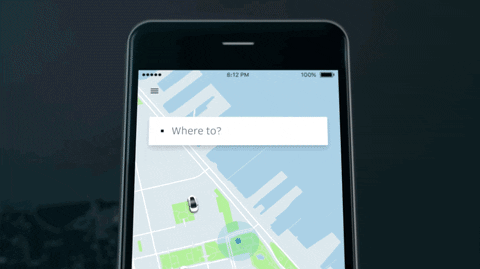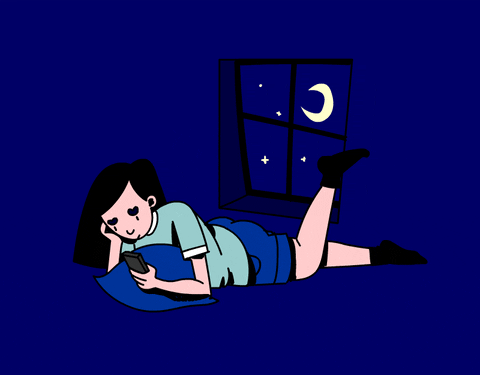Written by Claire Livingston
As a college student, going out at night seems almost inevitable. Whether it be for work, going to the bars or a late-night exam, students are out late. According to RAINN, a group that helps advocate for survivors of sexual violence, 11.2% of all students experience rape or sexual assault through physical force, violence or incapacitation (among all graduate and undergraduate students). Students are more vulnerable late at night, leaving them to possibly become one of the statistics.
“I’m paranoid. There are homeless, drunks and people looking for an easy target,” says Jacob Whitehead, a junior at Purdue University. Even when using various tactics, they only help to an extent when calming his nerves. A common assumption is that being a man, you feel safer at night. Violence of any kind can still occur to men and being aware of this is important. Anyone can become a victim and knowing how to be safe after sunset can possibly save your life.
Check out five ways to stay safe without sacrificing your social life.
1. Stick with a group or call a friend

Not going out alone is one of the easier solutions. If you’re going to the bars, arrive with a friend and leave with a friend. “It is imperative that we watch out for the well-being of one another and make sure that if someone drinks too much, we take responsibility for getting them home safe, even if that means that our night may be cut shorter than we anticipated,” said Bloomington Police Captain Ryan Pedigo.
Staying out late for school or work is an unavoidable issue. “My freshman and sophomore year I had to walk. Both years I lived not so close to my studio, so it was rough,” said Jessie Murawski, a junior at Southern Illinois University. She said on these nights coming home, she would either call her mom or a friend to feel safe. Though the person may not be by your side, there is still a witness there in case something were to happen.
2. Call an Uber or use campus resources

If you go out to the bars or to party, walking may not be the safest option, even when in a group. Having a safe mode of transportation when going back home is important when you aren’t sober. If having a designated driver isn’t an option, Uber is a good choice as well. Precautions should still be taken. “When I get Ubers, I always wait inside somewhere or with a friend,” said 22-year-old Rachel Wagoner. “Then I ask the driver their name or to verify that it’s the car Uber said was picking me up.”
Clarifying that the car you are getting into is in fact an Uber is important. Indiana University also offers a free service called Safety Escort that can take students home from 8pm until about 1:45 am. The only issue with this service is longer wait times, and people will often cancel thinking they will not get a ride home. “We’ll always get you home, we’ll do that if you keep your ride in,” said Hannah Brainard, a senior at IU and director of IU Safety Escort.
3. Take paths you know and find the blue lights

When walking home at night, stick to only the paths you know, and those that are well lit. Campuses such as IU and SUI feature woods that should be avoided at night since they are easy spot for perpetrators to hide. People who feel they are in danger can use blue lights that places on many campuses. “They have (blue lights) but they are not promoted nor placed often enough on campus,” said junior Abby Frankel studying at SUI. This lack of promotion or information can make it difficult to locate these lights.
During the daytime, try looking for them while walking to class to plan what paths to take later. Other issues come with these lights as well. “Also, there’s a woods on campus and you’re not supposed to go in there at night. All the blue lights around it are broken,” said Murawski. Knowing these issues ahead of time as well are important in figuring out which lights to avoid going to. If you are in an area without blue lights or broken ones, get to a path that is well lit and more populated.
4. Have some sort of protection

If you have to walk home alone at night, some sort of protection is needed. “I have pepper spray and I hold a key between my fingers,” said Frankel. Having some sort of item in hand while walking will both make you feel safer, and possibly stop someone if they see this. Even if you go home empty-handed, there are ways to still protect yourself with your surroundings. If you walk near trees, you can grab a stick as a weapon. If the thought of using an item scares you, watching videos on YouTube showing different self-defense techniques may work as well.
5. Take advantage of your phone

Technology is a wonderful thing. At our fingertips, you can contact people within seconds. Don’t be afraid to use it. “Generally I always text whoever I was with when I get home,” says Wagoner. Letting people know you are safe is a big relief to them. If you start this habit, when they don’t see a text from you may be what gets you help sooner. iPhone lets you share your location with another iPhone ranging from 1 hour to forever. Share your location with people close to you so they can check to see if you make it home safely. Multiple apps exist as well that have you do things such has hold a button until you feel safe, and if you let go and do not type in a password, it calls 911.
IU has its own app called “Guardian” for with features like this as well. “There’s an option to do a safe walk timer,” said Brainard. “It can send your location to somebody through a specific amount of time, like ‘It’s going to take 15 minutes to walk home’ so you can watch me walk along this little map.” An emergency buttons is featured with the map as well. If you are in fact in danger, get hold of your local police. “Many people don’t know about their ability to text 911 if they feel that calling might put them at risk,” says Pedigo.
Bio:
Claire Livingston is a junior at Indiana University studying photojournalism. She spends her free time taking pictures of sports, her friends, concerts… you get the point.



















